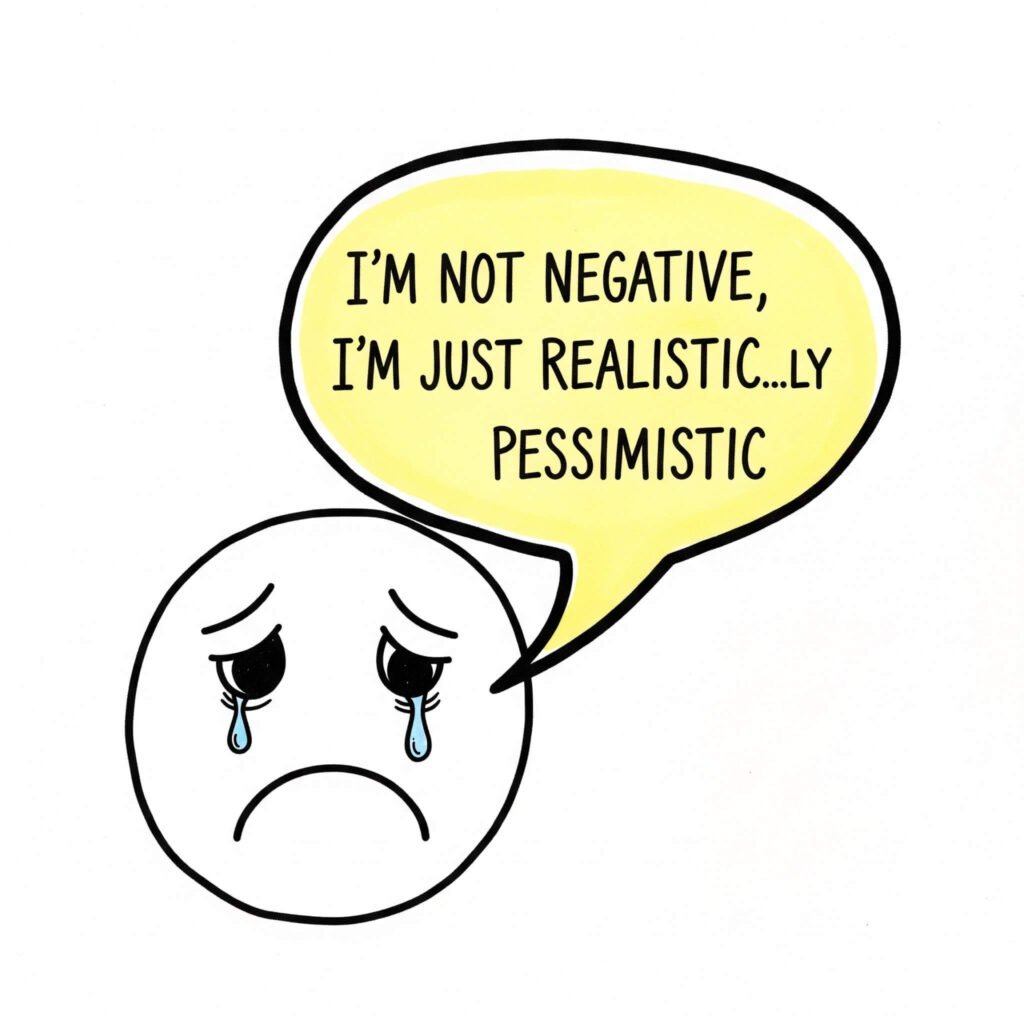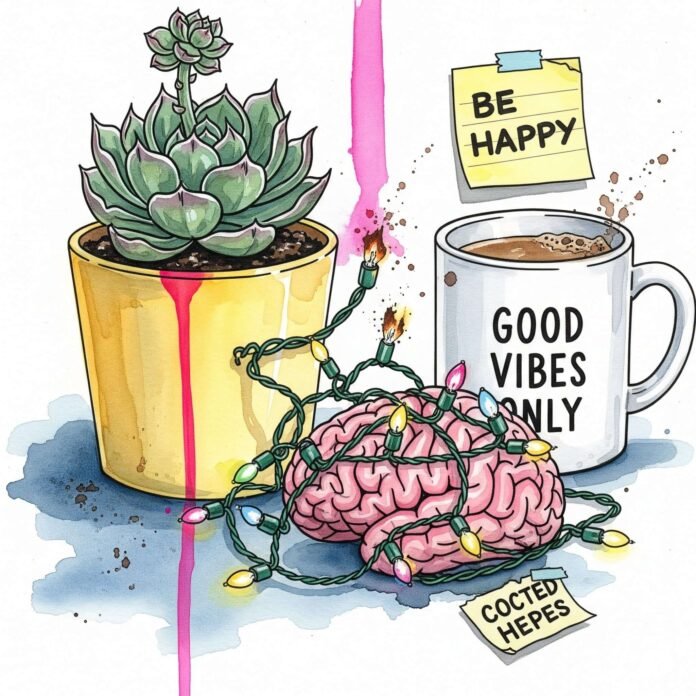I’m knee-deep in it right now, sitting in my freezing Denver apartment, snow piling up outside like the universe is trying to bury me. The radiator’s clanking, my coffee’s gone cold, and I’m staring at a sticky note on my fridge that says “POSITIVE THOUGHTS ONLY” in my own shaky handwriting. I used to think this stuff was just Instagram fluff—until I started reading the actual brain science positivity research and realized my grumpy ass might be onto something. Like, last week I woke up anxious, heart racing, and instead of spiraling, I muttered, “Okay, brain, let’s rewire this crap,” and actually felt a shift. Still skeptical, still American, still a mess—but here’s my raw take from the Mile High City.
I tried forcing gratitude once, wrote “thanks for not burning the toast” while my toaster smoked—felt ridiculous. But then I read about neuroplasticity mental health and how your brain literally rewires with repetition. Mind blown. Anyway, contradictions abound—I preach this but still doom scroll X at 2 a.m.

Science Behind Positive Thinking Actually Rewires Your Brain
From my sagging couch, with the faint smell of pine from my sad little Christmas tree, the science behind positive thinking boils down to neuroplasticity—your brain’s ability to form new connections. I started small: every morning, I’d list one dumb win, like “Didn’t trip on the ice today.” Sounds lame, but optimism brain effects are real—dopamine spikes, stress drops. I felt it after a week; less panic, more “eh, I’ll figure it out.”
But the evidence-based positivity studies say consistency beats perfection. This Harvard study on neuroplasticity and mood is wild—your brain can change, even if you’re a pessimist like me.
The Mental Health Benefits of Positivity (Backed by Science, Not Vibes)
Okay, the mental health benefits positivity aren’t just feel-good quotes—they’re legit. Serotonin optimism? Real thing. I started reframing fails: spilled coffee became “free desk cleaning.” My anxiety dipped, sleep improved.
- Dopamine hits: Tiny wins trigger reward pathways. I do it now, even if the sheets are wrinkled.
- Lower cortisol: I breathe through panic now, not just white-knuckle it.
- Stronger resilience: Brain science positivity shows repeated optimism builds mental muscle. I survived a freelance drought without melting down—progress.
This NIH piece on dopamine and mood is a game-changer—science, not fluff.

My Biggest Screw-Ups Testing the Science Behind Positive Thinking
Oh man, I’ve botched this science behind positive thinking thing so many times. Once, I tried “toxic positivity”—grinned through a breakup, saying “It’s fine!” while dying inside. Boom, resentment city. Lesson? Realistic positive thinking means feeling the bad first. I now say, “This hurts, but I’ll grow,” and it’s way less fake.
Another fail? Overdosed on affirmations. Stood in my bathroom, yelling “I AM ENOUGH” at my reflection while my bank account screamed otherwise. Felt like a liar. Now I stick to true stuff: “I showed up today.” This Mayo Clinic article on avoiding toxic positivity slapped sense into me.

Wrapping Up My Chaotic Dive into the Science Behind Positive Thinking
Phew, what a ramble—the science behind positive thinking has been my lifeline through Denver blizzards, anxiety spikes, and burnt toast mornings. Drop your own brain science positivity wins or flops below—I read ‘em all, even when I’m stress-eating ramen at midnight. Let’s keep it real, y’all.



























